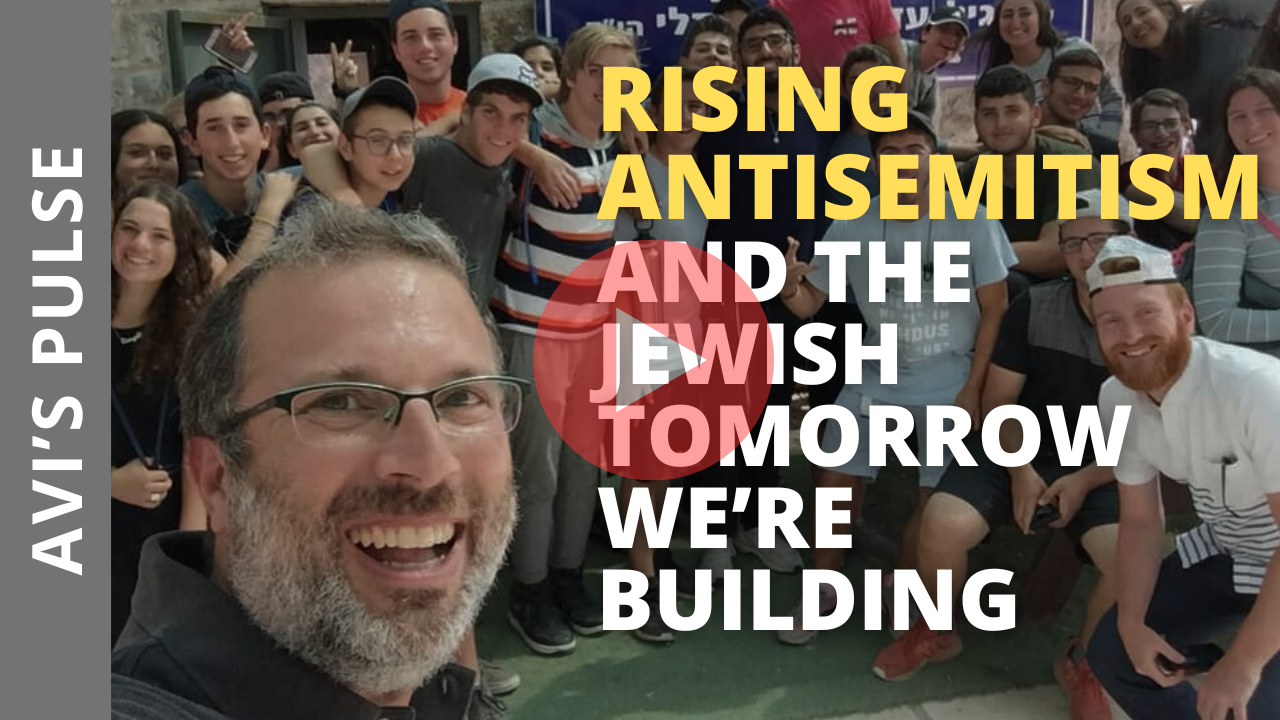They’ve consistently rejected one if it meant living in peace with a Jewish state. Do the idea’s advocates understand that their goal is Israel’s extinction, or do they want that, too?
It’s back in fashion. If Palestinian statehood were a stock, its price would be soaring. In the past several weeks, France, Britain, Canada and Australia have all said that they will recognize a Palestinian state next month at the annual meeting of the U.N. General Assembly. That’s on top of the 147 U.N. member states that already recognize the state of “Palestine.”
None of them seems to think there’s something wrong with rewarding Palestinians with statehood after the Hamas-led terrorist attacks on southern Israeli communities on Oct. 7, 2023. Indeed, that orgy of mass murder, rape, torture, kidnapping and wanton destruction seems to have fulfilled the hopes of Hamas terrorists by leading to a revival in interest in the scheme around the globe. The issue had gone stale for many years, due to the failure of negotiations to create one, sponsored by the Obama administration, and because of Palestinian intransigence. But a new spate of terrorism has suddenly made it quite popular.
A lot of Americans agree with the idea. According to a Reuters/IPSOS poll published this week, 58% of adult Americans favored recognition of a Palestinian state. That figure largely hinges on party affiliation, with 78% of Democrats agreeing, while only 41% of Republicans favor such recognition.
Interestingly, the question was paired with another about whether the State of Israel should be recognized. In that case, backing for Israel was higher, though far from unanimous, with 18% of Democrats, 12% of Republicans and 21% of those who didn’t identify with either party opposing the existence of the one Jewish state on the planet that has already been in existence for 77 years.

What Palestinians believe
That’s a key point. While a lot of people may think that it’s just fair play to give the Arabs a state if the Jews have one, the fact is, this state of Palestine that will be so popular at the General Assembly doesn’t actually exist.
More importantly, the Palestinian Arab population doesn’t want statehood as long as it would require them to live in peace alongside Israel. That’s been made abundantly clear for the last century as they have rejected numerous offers of statehood dating back to the 1947 U.N. partition resolution, which divided up what was then the British Mandate for Palestine, into Jewish and Arab states. More recently, along with the United States, Israel offered the Palestinians a sovereign state in Gaza, a share of Jerusalem, and almost all of Judea and Samaria (with territorial swaps for Israeli land) in 2000, 2001 and 2008 as part of negotiations seeking a two-state solution. Each time, they said “no” or walked away from the talks.
And according to the Palestinian Center for Policy and Research, which generally tilts its results toward the so-called “moderates” living in Judea, Samaria and Gaza, that’s still how they feel. The most recent poll they’ve conducted finds that only 40% of them favor such an entity as part of a two-state solution.
The Palestinian Authority, which autonomously rules most Arabs living in Judea and Samaria, has observer status at the United Nations. But neither it nor Hamas, which ruled Gaza from 2007 to 2023, qualifies for statehood under all the normal rules of international law. It doesn’t control a defined territory and doesn’t have a functioning government in any meaningful sense of the term.
The U.N. charter also requires it to be “peace-loving,” which, considering that neither the P.A. nor Hamas has shown itself willing to recognize the legitimacy of a Jewish state, no matter where its borders might be drawn in the future, cannot be said of this putative Palestinian state that so many wish to create.
To give you an even better sense of Palestinian opinion these days, as the war begun by Hamas on Oct. 7 drags on, that same poll showed that even after the disastrous impact of that war for their people is evident, fully 59% of them still support the Oct. 7 attacks on Israel. Only 18% of Gazans blamed Hamas for the suffering they’ve gone through as a result of the fighting. A strong majority—56%—are confident that Hamas will win the war. A staggering 87% of them denied the atrocities committed on Oct. 7, even though the attackers—a majority of whom were ordinary Palestinians and not Hamas or Islamic Jihad fighters—proudly filmed them and posted them on social media at the time.
The poll also showed that two-thirds of Palestinians, 67%, opposed the demonstrations against Hamas by Gaza residents, begging them to relinquish control of the Strip and end the war. Another large majority, 59%, claim that those demonstrations, which have received little or no coverage in the international media, are fake and the result of foreign plotting. An overwhelming majority of Palestinians also oppose the disarmament of Hamas, with only 18% favoring it.
Interestingly, the survey also asked Palestinians who they would vote for if an election were held today between Mahmoud Abbas, the 89-year-old Fatah leader who is president of the P.A., and a representative of Hamas. The results showed the Hamas leader getting 68% and Abbas only 25%. The results illustrate why the authoritarian and corrupt P.A. government has not held an election in two decades, with Abbas now serving the 20th year of the four-year term he was elected to in 2005.
Another Hamas state?
That gives the lie to the line often expressed by the Biden administration and even Republican members of the foreign-policy establishment like former Secretary of State Condoleezza Rice, who keep telling us that Hamas doesn’t represent most Palestinians. The truth is that there is little difference between the ultimate goals of Hamas and Fatah. Both seek Israel’s destruction and view talk of a separate Palestinian state as merely a way to further that objective, just as the late terrorist Yasser Arafat said all along, even when he signed the Oslo Accords in 1993.
And that explains why a recent Gallup survey showed that only 21% of all Israelis (and only 16% of Jewish Israelis) think the Palestinian state that everyone but the Palestinians want is compatible with peaceful coexistence.
The truth is that the Hamas state that existed in Gaza before Oct. 7 was an independent Palestinian state in all but name. Many hoped after Israel withdrew every soldier, settler and Jewish community from the Strip 20 years ago—in the summer of 2005—that the Arab residents there would create a prosperous or at least peaceful enclave on the Mediterranean with the tens of billions of dollars in aid that poured into the coastal enclave during those years. Instead, it was utilized to build an underground terrorist fortress.
The aim of that Hamas government—then and now still supported by most Palestinians—wasn’t to better the lives of its population or build a state. It was to use their power to advance the Palestinians’ century-old war on the Jews, destroy the Jewish state and achieve the genocide of its population, Jewish and otherwise. The unspeakable horrors of Oct. 7 were just the trailer for what the Palestinians aimed to do to all of Israel.
Why, then, are so many countries lining up to give them a state with which they can try to do the same thing again?
A propaganda victory
The main impetus for the uptick in advocacy for a Palestinian state is the success of Hamas propaganda about the war they started.
The international media has bought Hamas’s lies about Palestinian civilian casualties, starvation and Israeli genocide, hook, line and sinker. Palestinians are definitely suffering as a result of the war they started. But thanks to sympathetic coverage that largely ignores Hamas’s use of civilians as human shields, coupled with its stealing of the massive amount of food and other supplies allowed into Gaza only to create food shortages for civilians, most people around the world believe the destruction and the harm being caused by the war is solely Israel’s fault. That includes many in the United States, particularly among youth.
That it is unprecedented for the party that was attacked to be asked to feed the very people who prefer them dead hasn’t deterred international opinion from demanding that the Jewish state do so and to declare that its efforts in that regard remain insufficient.
Hamas has achieved this signal triumph even as its army of terrorists has been defeated by the Israel Defense Forces because of its ability to control the media operating in Gaza. As was the case before Oct. 7, there are only three kinds of journalists who cover the Palestinian population in Gaza, whether they are local Palestinians working for Arab media like the Qatar-run Al Jazeera or stringing for international outlets. Those consist of the journalists who are influenced by and sympathetic to Hamas; those who are intimidated by Hamas into doing their bidding; and those who actually are Hamas members (including some who participated in the Oct. 7 massacres).
Yet there is more to this than just media bias.
Another major factor is domestic politics. In countries like France and Britain, a bizarre red-green alliance of Marxists and Islamists who may differ on many things but are united by their antisemitism is a powerful factor in determining government policy. A massive influx of Muslim immigrants from North Africa, South Asia and the Middle East has become a powerful political force in France and the United Kingdom.
The left comes to this position through its embrace of toxic Marxist ideas like intersectionality and settler-colonialism, in which Jews and Israel are falsely labeled as “white” oppressors of downtrodden Palestinians, who are “people of color.” That’s why the same thing is happening in Canada and Australia, where left-wing parties currently in power have now adopted the Hamas blood libels about Israel committing genocide. It also explains the willingness of Democrats in the United States to buy into the same lies.
A surge of hatred
Yet underlying this embrace of Hamas propaganda about Israel and the growing support for Palestinian statehood is the post-Oct. 7 surge in antisemitism.
The increase in Jew-hatred around the globe is partly a result of the lies about Israel, as well as the way the victimization of Jews has always encouraged animosity against them. But it builds on the hostility to Jews that is part of the history of the West, as well as is built into the mindset of Arab and Muslim culture.
No other nation in the world would be asked to deliberately endanger itself by allowing its sworn enemies to be put in a stronger position to achieve its destruction. No other nation would be or ever has been judged by such double standards about its conduct. Only the State of Israel and its people are expected to experience the worst slaughter of Jews since the Holocaust and not seek to prevent that from happening again.
Two states for two peoples sounds logical and a nice idea. And in a world where one of the two states was not inhabited by people whose national identity and political culture are inextricably tied to a futile war for the destruction of the other one, it might work.
That and that alone is why the Palestinians still don’t have a state. It’s also why the overwhelming majority of Israelis—and people who support Israel, like the overwhelming majority of Republicans in the United States—refuse to let one be created after trying to give them one to them time and again, only to discover that they were trading land for terror, not peace.
All of this leads one to ask whether those advocating for a Palestinian state now that they’ve repeatedly shown that they don’t want one except as a platform from which they can further their war on Israel understand such facts and history.
Given the abysmal lack of knowledge about the history of the Middle East and the biased news coverage of the conflict, it explains why many think that a Palestinian state is a fine idea or wrongly believe that Jews are colonizers in the country where they are the indigenous people.
It’s also true that many of those advocating for Palestinian statehood or chanting “From the river to the sea” or “Globalize the intifada”—in effect, cheering for Jewish genocide and terrorism against them everywhere—on college campuses and the streets of Western cities are not just ignorant. They, too, seek Israel’s destruction.
And so, it’s time to be honest about the push for Palestinian statehood.
Support for the idea is not about fairness or alleged Israeli misbehavior. It’s rooted in prejudice against Jews, and a willingness to erase Jewish history and rights. And even to acquiesce to the mass slaughter of Israelis as a possibility that is debatable, rather than abhorrent.
Whether the result of political calculations, dishonest journalism or leftist ideologies, the growing support for Palestinian statehood is a function of a desire on the part of many people—whether on the left or a loud minority on the right—to envision the eradication of the sole Jewish state on the planet. This issue is thus a test of international morality as much as anything else. Decent people, whether they are Jewish or non-Jewish or where they are on the political and religious spectrums, must oppose it.

 Whatsapp
Whatsapp




